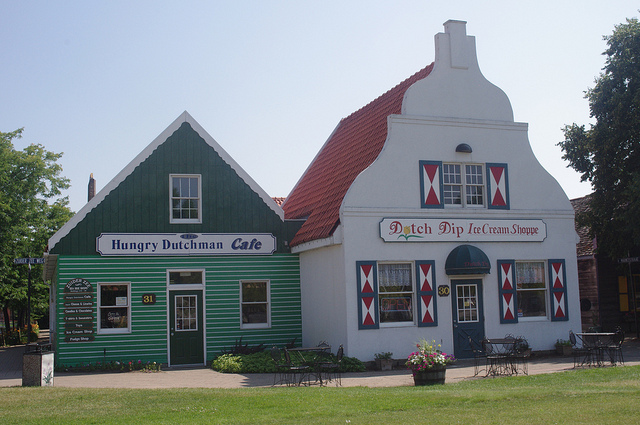Three cheers for the red, white and blue – or maybe just the hometown
As our nation – what? sprints? strides? stumbles? limps? – toward its 238th birthday, we prepare once again for our great patriotic festivities. To do so well, however, requires we have some sort of understanding of patriotism. This is a dangerous venture, for one tends to inquire into feelings only when those feelings have become tenuous.
So it is for us. In our time patriotism has become a problem: often bowdlerized by ideological pretenders, or captured in the feckless actions of those Thomas Paine dismissed as “the summer soldier and the sunshine patriot.”
Patriotism connotes a mode of love, or as Pericles put it in his canonical “Funeral Oration,” in being “lovers of the city.” Being a lover, however, implies a kind of reciprocated passion between two parties.
What is it we are loving, and how are we loved in return? We can start negatively, thinking about what we are not loving. Defenders of Republican government have long held to the view that empires can never be objects of love. It was for this reason that Washington had Joseph Addison’s “Cato” performed regularly for the troops at Valley Forge: to teach the soldiers that Caesar’s quest for glory was “ignobly vain, and impotently great,” purchased with injustice and tyranny, and contrasted to the temperate soul of Cato, defender of liberty and lover of a Rome of “humble virtues, and a rural life.” The lust for dominion creates a civil discord that “shakes our country with alarms/And gives up Rome a prey to Roman arms/Produces fraud, and cruelty, and strife/And robs the guilty world of Cato’s life.”
Nor can it be militarism, with its brutality and coarseness. The patriots of ’76 uniformly feared the possibility of a “standing army” not only because it was a threat to liberty and an invitation to onerous taxation and debt, but also because it corrupted morals. An army “will inevitably sow the seeds of corruption and the depravity of manners. Indolence will increase ... the springs of honesty will generally grow lax, and chaste and severe manners be succeeded by those that are dissolute and vicious.”
The militarization of America was feared by no less a patriot than Patrick Henry, who saw in public support for an army and a navy only a desire for “a great and mighty empire,” the preference for a “splendid government” over “a simple one,” the latter which alone had liberty as its “primary object.”
Nor can it be a large, centralized bureaucracy. A state is distinct from a nation, and its defining features are absorptive and monopolistic, and thus a threat to liberty. It doubles-down on this threat to liberty by operating with a client-based politics that creates dependent subjects rather than self-sufficient citizens. As Alasdair MacIntyre wrote it is “a supplier of goods and services, which is always about to, but never actually does, give its clients value for money;” and at the same time demands that these clients be prepared to sacrifice their lives on its behalf, which, MacIntyre says, is “like being asked to die for the telephone company.”
What happens to patriotism when love becomes simple obedience, on one side, and perpetuated dependency on the other? This is the soft despotism Tocqueville feared, one which would “resemble paternal power” if it sought to prepare persons for adult life, but instead tried to keep them in a perpetual state of childhood, the effect of which is to “extinguish their spirits and enervate their souls.”
One solution resides in a patriotism that stresses a love of the place of one’s birth. There is no program to overcome this contingency which does not result in the attenuation of the freedom Americans purport to love. It would stress our enmeshment in particular communities and commitment to particular places that alone can give value to our efforts without diffusing them.
As Tocqueville said, a nation cannot be strong where each person in it is individually weak. To strengthen each individual requires enlarging them by shrinking the scale of political life. A true patriotism starts locally and radiates out. I love Holland more than I love Michigan; and I love Michigan more than I love America. The Founders would have approved.
See what new members are saying about why they donated to Bridge Michigan:
- “In order for this information to be accurate and unbiased it must be underwritten by its readers, not by special interests.” - Larry S.
- “Not many other media sources report on the topics Bridge does.” - Susan B.
- “Your journalism is outstanding and rare these days.” - Mark S.
If you want to ensure the future of nonpartisan, nonprofit Michigan journalism, please become a member today. You, too, will be asked why you donated and maybe we'll feature your quote next time!


 If one loves Holland, Mich. more than America, does that make a person a bad patriot? Quite the contrary. (Photo by Flickr user LugerLA; used under Creative Commons license)
If one loves Holland, Mich. more than America, does that make a person a bad patriot? Quite the contrary. (Photo by Flickr user LugerLA; used under Creative Commons license)